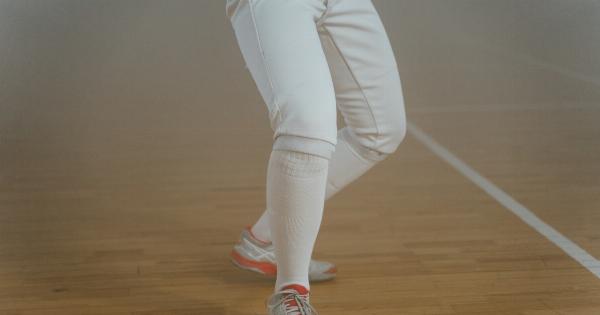If you struggle with nerves and anxiety, it’s important to make conscious choices about the movements you incorporate into your daily routine.
While exercise is generally fantastic for overall well-being, certain movements can heighten your nervousness and potentially elevate stress levels. Understanding which exercises to avoid is crucial in protecting your mental well-being.
In this article, we will explore six movements you should never do if you struggle with nerves, and provide alternative exercises that promote relaxation and reduce stress.
The Importance of Exercise for Nervous System Health
Before delving into the movements to avoid, let’s briefly discuss the significance of exercise for your overall nervous system health. Engaging in regular physical activity is proven to boost mood and reduce symptoms of anxiety and depression.
Exercise increases the production of endorphins, which are known as “feel-good” neurotransmitters.
Additionally, regular exercise helps regulate the sleep-wake cycle, which is beneficial for individuals with nervous system imbalances.
Adequate sleep is crucial for optimal mental health, and exercise can improve both the quality and duration of your restorative sleep.
Movement #1: High-Intensity Interval Training (HIIT)
High-intensity interval training (HIIT) is a popular exercise technique that involves alternating intense bursts of exercise with short recovery periods.
While HIIT can be incredibly effective for cardiovascular fitness and weight loss, it may not be suitable for individuals struggling with nerves.
The rapid and intense movements involved in HIIT can cause an adrenaline rush, elevating heart rate and revving up the nervous system. This heightened response can trigger feelings of anxiety, especially if you are already prone to nervousness.
Alternative Exercise: Instead of HIIT, consider engaging in moderate cardio exercises such as brisk walking, swimming, or cycling. These activities promote cardiovascular health without overwhelming the nervous system.
Movement #2: Heavy Weightlifting
Heavy weightlifting, such as powerlifting or competitive bodybuilding, requires significant exertion and places a high demand on the body.
While weightlifting is beneficial for muscle strength and overall fitness, it can also induce stress responses in individuals struggling with nerves.
Intense weightlifting sessions often result in elevated cortisol levels, which is the body’s primary stress hormone. The combination of physical strain and cortisol release can increase feelings of nervousness and anxiety.
Alternative Exercise: Opt for lighter weightlifting routines or bodyweight exercises that focus on muscle endurance and flexibility. These exercises offer similar benefits without triggering excessive stress responses.
Movement #3: Advanced Yoga Poses
Yoga is renowned for its relaxation and stress-reducing benefits. However, certain advanced yoga poses that require significant strength and balance can be overwhelming for individuals with nerves.
These complex poses can lead to increased feelings of inadequacy and frustration, potentially exacerbating anxiety.
Alternative Exercise: Stick to calming and gentle yoga practices like Hatha or Restorative Yoga. These styles focus on slow, deliberate movements and emphasize mindfulness and deep breathing, promoting a sense of relaxation and mental tranquility.
Movement #4: Competitive Sports
Competitive sports can provide an excellent outlet for physical activity and social engagement. However, the intense and high-pressure nature of competitive sports may not be ideal for those struggling with nerves.
Engaging in competitive sports can intensify feelings of anxiety, especially if winning or achieving certain performance standards becomes the primary focus.
The fear of failure and the stress associated with competition can trigger nervousness and negatively impact mental well-being.
Alternative Exercise: Consider participating in recreational sports or activities that prioritize fun and social interaction over competition.
Activities like hiking, kayaking, or group fitness classes can provide the benefits of physical activity without the added pressure and anxiety associated with competition.
Movement #5: Excessive Abdominal Crunches
Abs workouts are often emphasized for core strength and toning. However, excessive abdominal crunches, especially when performed improperly or without adequate recovery, can increase muscular tension and strain.
The tension built up in the abdominal muscles and the accompanying discomfort can lead to heightened feelings of anxiety, particularly if you have a tendency to hold stress in your body.
Alternative Exercise: Engage in exercises that focus on overall core stability, such as planks, bird-dogs, or yoga poses like the boat pose.
These exercises help strengthen the core while promoting relaxation and reducing unnecessary strain on the abdominal muscles.
Movement #6: Overly Intense Plyometric Exercises
Plyometric exercises, often referred to as “jump training,” involve rapid and forceful movements, such as box jumps and burpees.
While these exercises are excellent for explosive strength and cardiovascular conditioning, they can be overwhelming for individuals struggling with nerves.
The high-intensity and repetitive nature of plyometric exercises can trigger an adrenaline rush, further exacerbating nervousness and anxiety symptoms.
Additionally, the risk of injury during these explosive movements can add an extra layer of stress and anxiety.
Alternative Exercise: Opt for low-impact exercises that focus on controlled movements, such as Pilates or tai chi. These activities promote body awareness, balance, and overall flexibility without putting excessive strain on the nervous system.
Conclusion
When dealing with nerves and anxiety, it’s essential to prioritize exercises that support your mental well-being.
Avoiding certain movements and opting for alternative exercises can significantly contribute to reducing stress and promoting relaxation.
Remember, listening to your body and recognizing its unique needs is crucial. Experiment with different types of exercise and pay attention to how each movement makes you feel.
Find exercises that resonate with your body and mind, allowing you to harness the tremendous benefits of physical activity while protecting your nervous system and overall mental well-being.






























